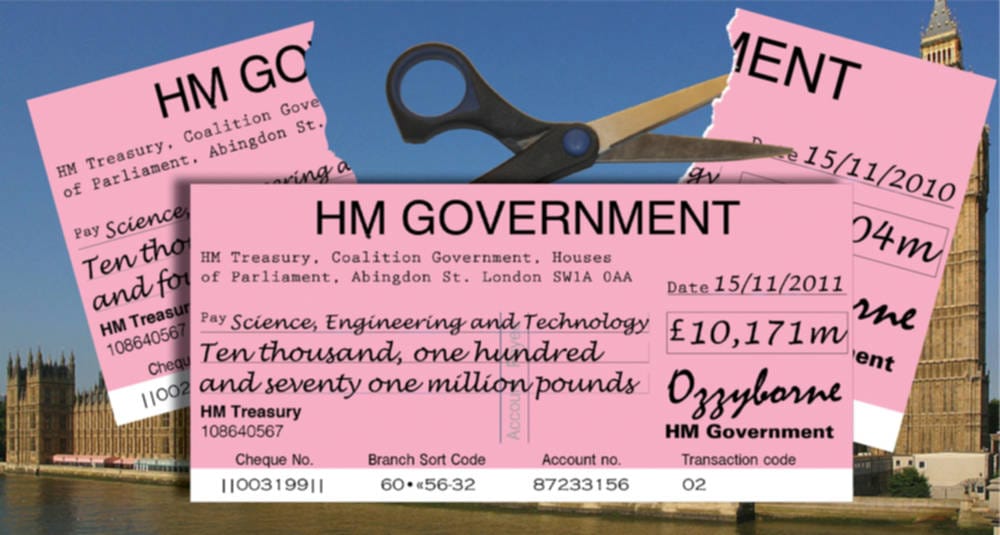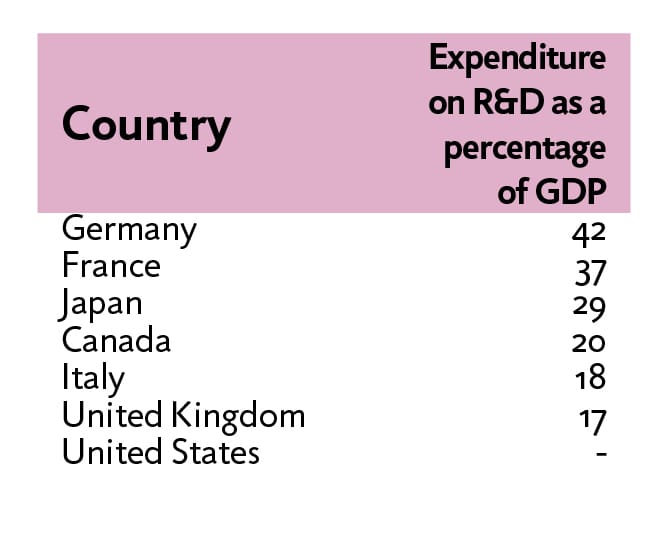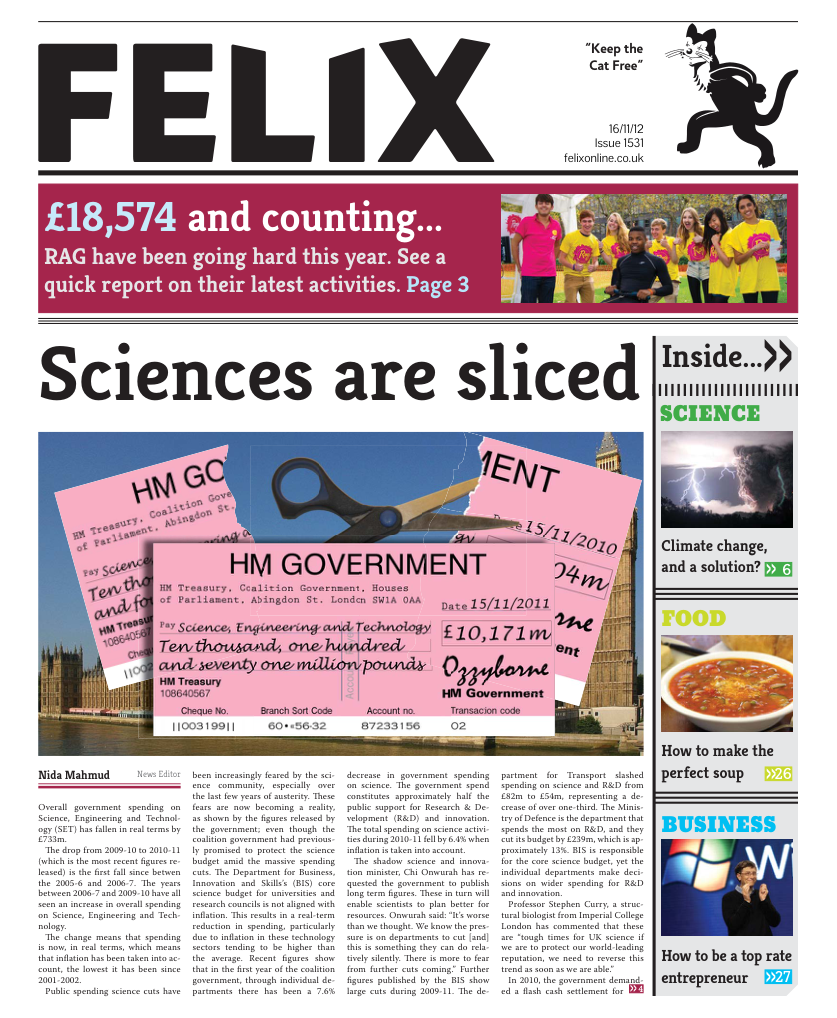Sciences are sliced
A real term decrease to science spending

Overall government spending on Science, Engineering and Technology (SET) has fallen in real terms by £733m.
The drop from 2009-10 to 2010-11 (which is the most recent figures released) is the first fall since betwen the 2005-6 and 2006-7. The years between 2006-7 and 2009-10 have all seen an increase in overall spending on Science, Engineering and Technology.
The change means that spending is now, in real terms, which means that inflation has been taken into account, the lowest it has been since 2001-2002.
Public spending science cutshave been increasingly feared by the science community, especially over the last few years of austerity. These fears are now becoming a reality, as shown by the figures released by the government; even though the coalition government had previously promised to protect the science budget amid the massive spending cuts. The Department for Business, Innovation and Skills’s (BIS) core science budget for universities and research councils is not aligned with inflation. This results in a real-term reduction in spending, particularly due to inflation in these technology sectors tending to
Overall government spending on Science, Engineering and Technology (SET) has fallen in real terms by £733m
be higher than the average. Recent figures show that in the first year of the coalition government, through individual departments there has been a 7.6% decrease in government spending on science. The government spend constitutes approximately half the public support for Research & Development (R&D) and innovation. The total spending on science activities during 2010-11 fell by 6.4% when inflation is taken into account.
The shadow science and innovation minister, Chi Onwurah has requested the government to publish long term figures. These in turn will enable scientists to plan better for resources. Onwurah said: “It’s worse than we thought. We know the pressure is on departments to cut [and] this is something they can do relatively silently. There is more to fear from further cuts coming.” Further figures published by the BIS show large cuts during 2009-11. The department for Transport slashed spending on science and R&D from £82m to £54m, representing a decrease of over one-third. The Ministry of Defence is the department that spends the most on R&D, and they cut its budget by £239m, which is approximately 13%. BIS is responsible for the core science budget, yet the individual departments make decisions on wider spending for R&D and innovation.
Professor Stephen Curry, a structural biologist from Imperial College London has commented that these are “tough times for UK science if we are to protect our world-leading reputation, we need to reverse this trend as soon as we are able.”
In 2010, the government demanded a flash cash settlement for the science budget. Since then, researchers have been wary of the decrease in funding due to inflation. The cuts for certain departments exceed 40%. Back in 2010, George Osborne decided to protect the science budget. He said “the secretary of state (for business) and I have decided to protect the science budget. Britain is a world leader in scientific research and that is vital to our future economic success. That’s why I am proposing that we do not cut the cash going to the science budget. It will be protected at £4.6bn per year.” The UK spends approximately £25bn on R&D, positioning it seventh in the world by % GDP. The tables show that the UK government is not spending as much (by %GDP) as other leading nations. Coupling this with the real-term cuts could potentially damage the UK’s economic competitiveness.
In the UK, about 32% of funding for R&D is provided by the government.
When the UK is compared to other countries in the G7 (United States, United Kingdom, Italy, France, Germany, Japan, Canada), the UK spends the lowest percentage of the Gross Domestic Product (GDP) on R&D (see table below).








